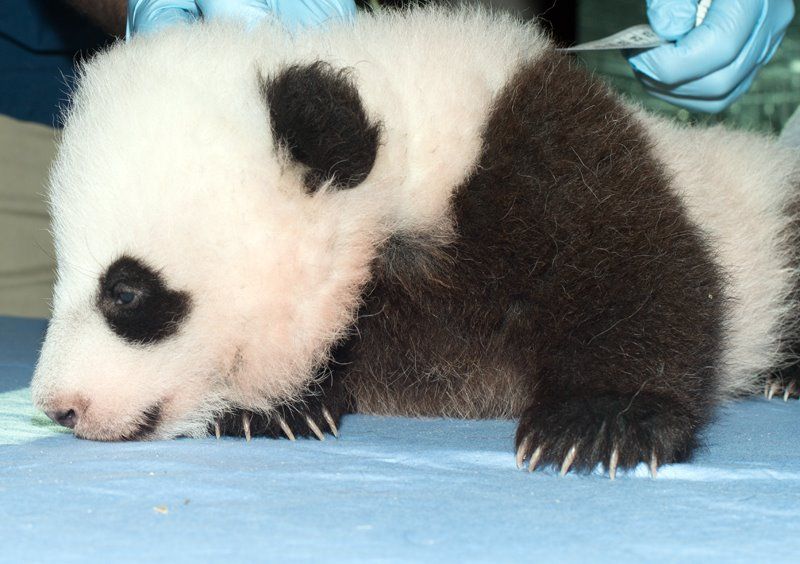Poll to Name National Zoo Panda Cub Closes Friday

There are just a few days left to cast a vote to name the newest giant panda cub at the Smithsonian's National Zoo in Washington, D.C.
Panda mom Mei Xiang gave birth to the female cub on Aug. 23, but in keeping with Chinese tradition, the baby bear will not be named until it is 100 days old.
The poll to pick a name for the cub is open until Friday (Nov. 22), and the winning moniker will be announced in a ceremony at 1:00 p.m. ET on Dec. 1. [In Photos: Giant Panda Mei Xiang Gives Birth]
These are the five candidates for the panda's name (in Mandarin Chinese) with their meanings:
- Bao Bao: precious, treasure.
- Ling Hua: darling, delicate flower.
- Long Yun: Long is the Chinese symbol of the dragon, while Yun means charming. Combined this represents a sign of luck for panda cooperation between China and the U.S.
- Mulan: a legendary young woman and brave Chinese warrior from the fifth century; it also means magnolia flower in Chinese.
- Zhen Bao: treasure, valuable.
You can vote for your favorite on the Smithsonian magazine's website: http://www.smithsonianmag.com/specialreports/name-the-panda/
According to the zoo's latest update, the 3-month-old panda cub now weighs 10.34 lbs. (4.7 kilograms) and is just starting to crawl and move around independently.
"On Sunday she almost walked out of the den all by herself," zoo officials wrote in an update on Tuesday (Nov. 19). "She stood in the doorway of the den trying to get her hind legs underneath her and walk, but she tired herself out and took a nap in the doorway instead."
Sign up for the Live Science daily newsletter now
Get the world’s most fascinating discoveries delivered straight to your inbox.
Mei Xiang's cub is one of three born this year at zoos in the United States. In July, Zoo Atlanta's female Lun Lun gave birth to male twin panda cubs. Those brothers were also named in a public vote; they are now called Mei Lun (may loon) and Mei Huan (may hwaan), which originate from a Chinese idiom that translates to "something indescribably beautiful and magnificent." Mei Lun, Mei Huan and the panda awaiting a name in Washington all are the products of artificial insemination.
Giant pandas are endangered in the wild. Only about 1,600 are thought to exist in a few fragmented forest habitats in China. All pandas in zoos in the United States technically belong to China and most cubs return to their ancestral homeland after a few years to join China's captive breeding program.
Follow Megan Gannon on Twitter and Google+. Follow us @livescience, Facebook & Google+. Original article on LiveScience.











